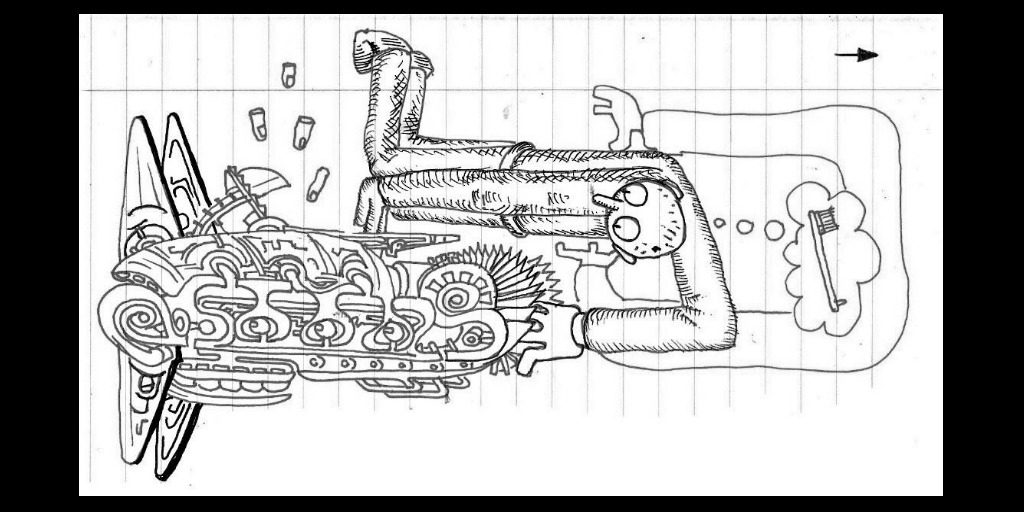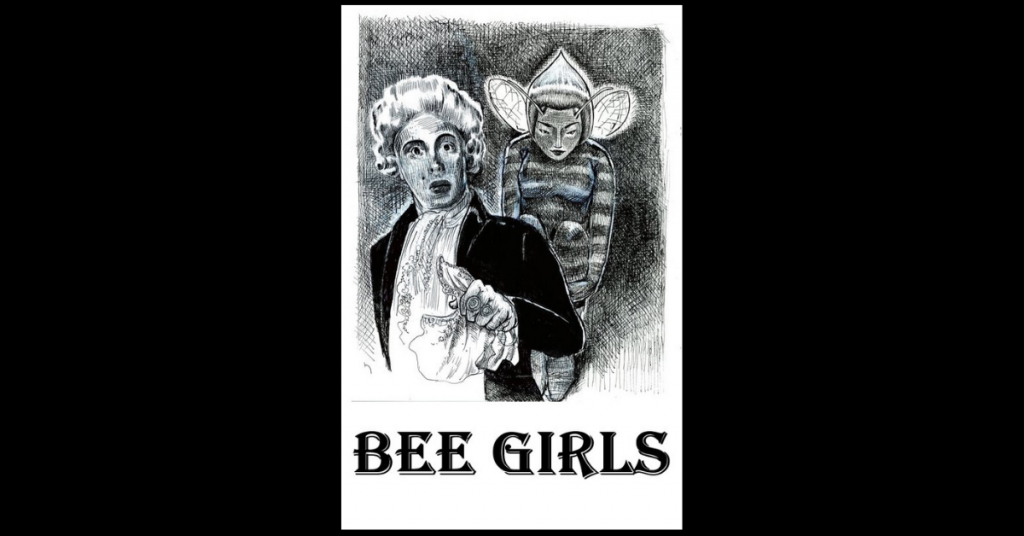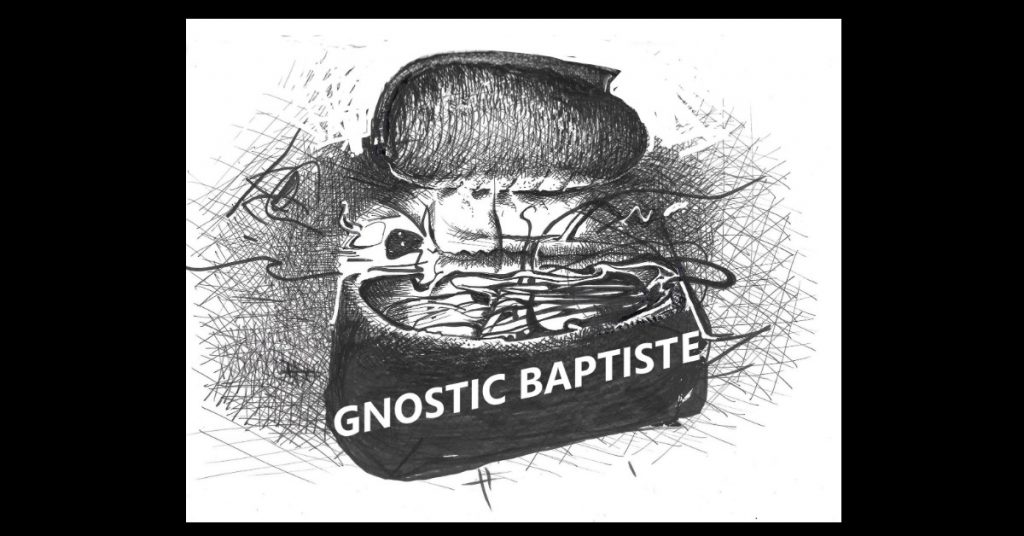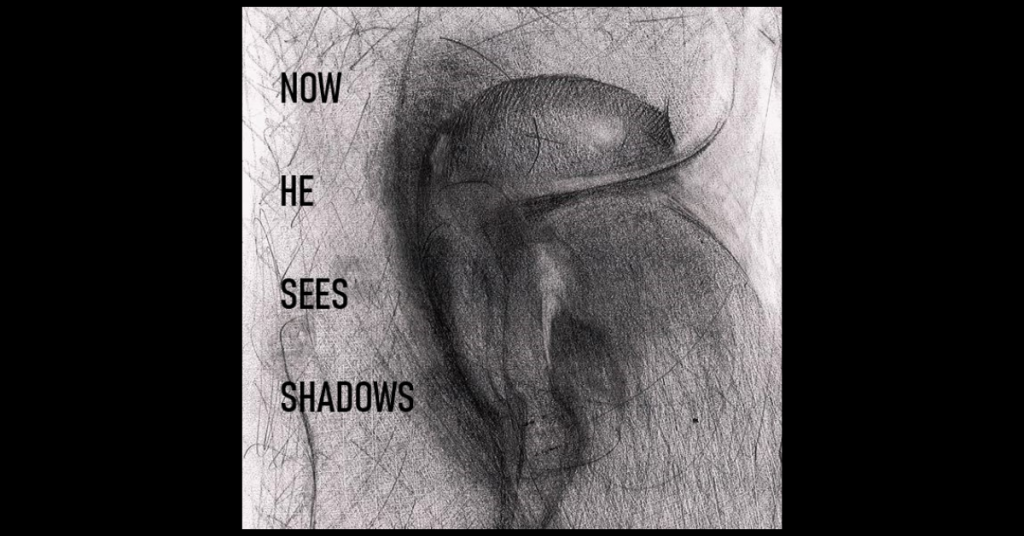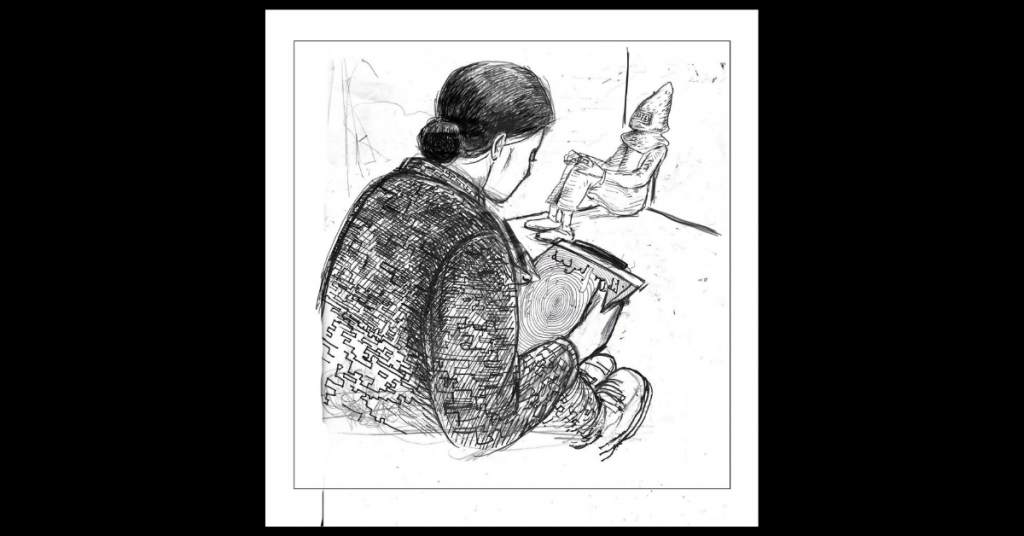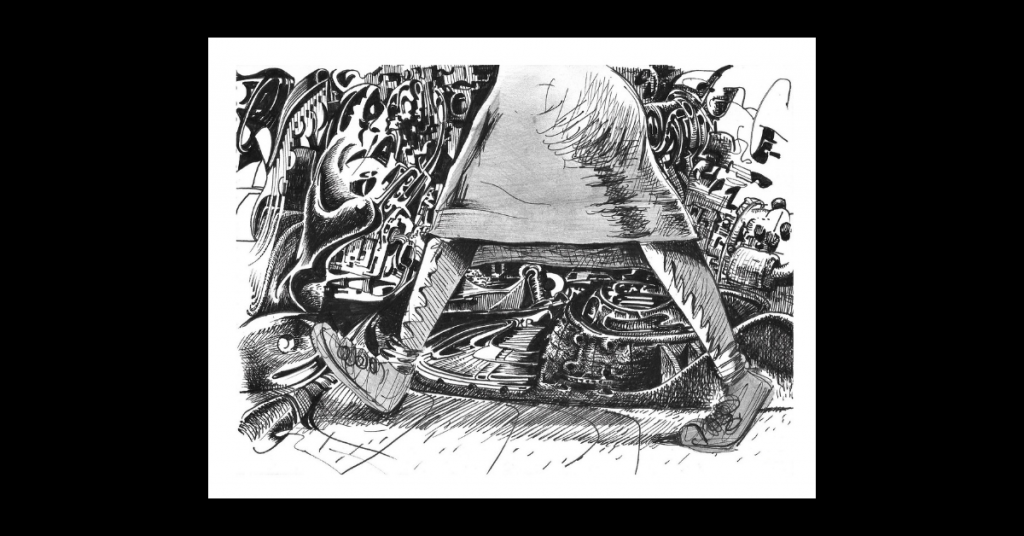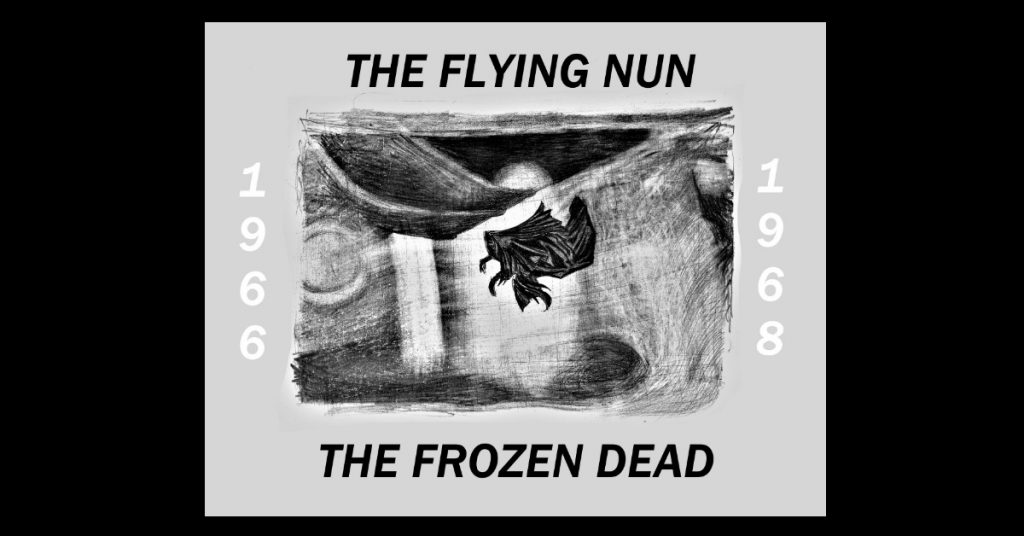
THE FLYING NUN, THE FROZEN DEAD: 1966-1968 by Gregg Williard
Recently deceased science fiction writer Harlan Ellison wrote a 1968 episode of the TV series, “The Flying Nun” in order, he said, “to fuck Sally Fields.” If he just had a chance to get close to her, he believed, he could persuade her to have sex with him. The episode was titled, “You Can’t Get There from Here.” Sister Bertrille (Field) crashes on a remote island after the wind dies down. Her glider-like head piece, or cornette, falls in the water and is torn, leaving her stranded. She discovers other castaways, a pair of feuding lovers, who eventually reunite and…


